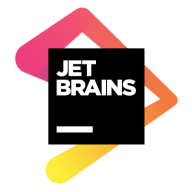

GoCD and TeamCity are competing products in the realm of continuous integration and continuous delivery tools, offering distinct advantages in various areas. TeamCity tends to lead in feature set versatility, offering more comprehensive integrations, while GoCD stands out in pipeline modeling flexibility.
Features: GoCD provides efficient pipeline modeling and features such as value stream mapping that aid in deployment tracking. It supports extensive integration options and visual representations of build pipelines. TeamCity, on the other hand, offers numerous framework integrations, comprehensive build management capabilities, and a suite of plugins. Its support for cross-platform builds and seamless IDE integration are particularly notable.
Room for Improvement: GoCD could improve by expanding its plugin library and refining its user interface for newer users. The limited plugin availability can restrict flexibility. Enhanced documentation could benefit complex setup scenarios. TeamCity's initial configuration complexity might be streamlined for quicker user onboarding, and the cost associated with its robust feature set may be a barrier for smaller teams. It could benefit from more straightforward licensing models and pricing structures.
Ease of Deployment and Customer Service: GoCD emphasizes a swift deployment process with wide platform compatibility. Its community-driven support aids in troubleshooting and learning. TeamCity offers a polished deployment experience supported by comprehensive online documentation and dedicated, responsive customer service, although the initial setup can be more complex compared to GoCD.
Pricing and ROI: GoCD, being open source, is cost-effective for budget-conscious teams, offering customizable solutions with minimal upfront costs. TeamCity, a paid platform, provides significant ROI with its extensive feature set and integration capabilities, justifying the expense for enterprises needing robust support and integration options. While GoCD is more accessible cost-wise, TeamCity offers a more feature-rich environment that could drive more strategic returns.
| Product | Market Share (%) |
|---|---|
| TeamCity | 6.1% |
| GoCD | 2.1% |
| Other | 91.8% |

| Company Size | Count |
|---|---|
| Small Business | 4 |
| Midsize Enterprise | 2 |
| Large Enterprise | 3 |
| Company Size | Count |
|---|---|
| Small Business | 11 |
| Midsize Enterprise | 4 |
| Large Enterprise | 15 |
TeamCity is a Continuous Integration and Deployment server that provides out-of-the-box continuous unit testing, code quality analysis, and early reporting on build problems. A simple installation process lets you deploy TeamCity and start improving your release management practices in a matter of minutes. TeamCity supports Java, .NET and Ruby development and integrates perfectly with major IDEs, version control systems, and issue tracking systems.
We monitor all Build Automation reviews to prevent fraudulent reviews and keep review quality high. We do not post reviews by company employees or direct competitors. We validate each review for authenticity via cross-reference with LinkedIn, and personal follow-up with the reviewer when necessary.